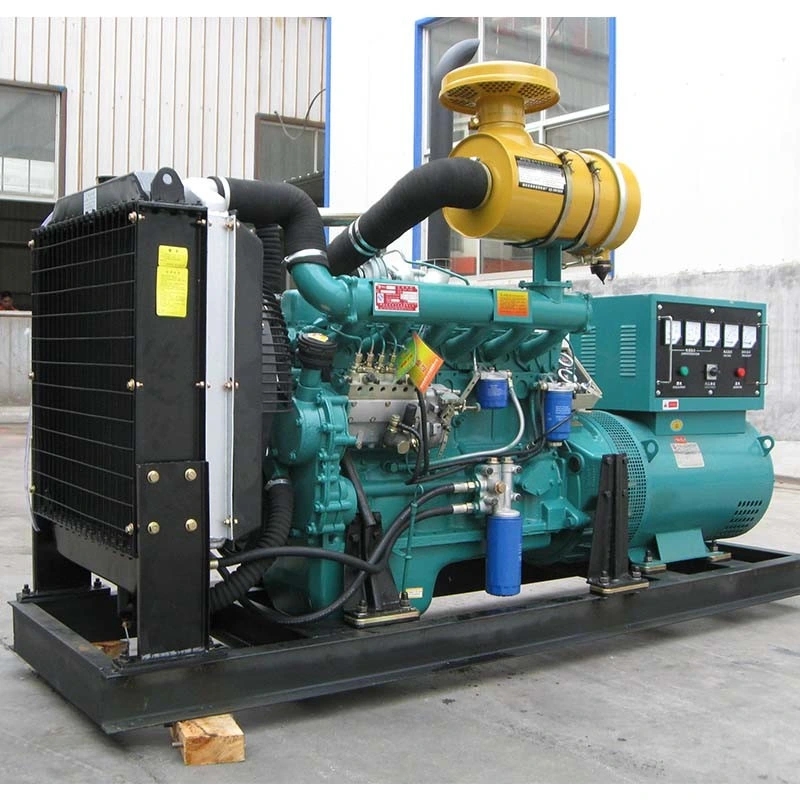Introduction
In today's world, electrical power has become an essential part of our daily lives. From lighting up our homes to powering essential appliances, we rely heavily on electricity to carry out our day-to-day activities. However, power outages are a common occurrence, and they can disrupt our lives and leave us vulnerable. To combat this issue, many homeowners are turning to diesel generators as a reliable source of backup power for their homes. In this comprehensive guide, we will explore the benefits, considerations, and best practices for using a diesel generator for home use.
Benefits of Using a Diesel Generator for Home Use
1. Reliability: One of the main advantages of using a diesel generator for home use is its reliability. Diesel generators are known for their durability and robust performance, making them a dependable source of backup power during outages. Unlike gasoline generators, diesel generators are less prone to breakdowns and can run for longer periods without overheating.
2. Fuel Efficiency: Diesel generators are known for their fuel efficiency, which means they can provide power for longer durations with less fuel consumption compared to other types of generators. This makes diesel generators a cost-effective option for homeowners looking to invest in a reliable backup power source.
3. Longevity: Diesel generators are built to last, with many models designed to withstand harsh weather conditions and heavy usage. With proper maintenance and care, a diesel generator can last for many years, providing homeowners with peace of mind knowing they have a reliable backup power source.
4. Power Output: Diesel generators are capable of producing high power output, making them suitable for powering a wide range of appliances and devices in a home. Whether it's running essential appliances like refrigerators and air conditioners or powering lights and electronics, a diesel generator can handle the load with ease.
Considerations Before Purchasing a Diesel Generator for Home Use
1. Power Requirements: Before purchasing a diesel generator for home use, it's essential to calculate your power requirements to determine the size and capacity of the generator you need. Consider the appliances and devices you want to power during an outage and choose a generator that can handle the total load.
2. Noise Level: Diesel generators are known for their noise levels, which can be a concern for homeowners living in residential areas. When selecting a diesel generator for home use, consider the noise level it produces and opt for models that are designed to operate quietly to minimize disturbance to your neighbors.
3. Maintenance Needs: Like any other machinery, diesel generators require regular maintenance to ensure optimal performance and longevity. Before purchasing a diesel generator, consider the maintenance needs and costs associated with the specific model to factor them into your decision-making process.

4. Fuel Storage: Diesel generators require a constant supply of fuel to operate, so it's essential to have a reliable fuel storage solution in place. Consider the size of the fuel tank on the generator and how frequently you will need to refuel it to ensure uninterrupted power supply during outages.
Best Practices for Using a Diesel Generator for Home Use
1. Proper Installation: To ensure the safe and efficient operation of a diesel generator, it's essential to have it installed by a professional electrician or generator technician. Proper installation will not only prevent accidents but also optimize the performance of the generator.
2. blog here : Regular maintenance is key to keeping a diesel generator in good working condition. Follow the manufacturer's guidelines for servicing and inspecting the generator at regular intervals to identify and address any issues before they escalate.
3. Fuel Quality: The quality of fuel used in a diesel generator can impact its performance and longevity. Use high-quality diesel fuel that meets the manufacturer's specifications to prevent clogs, buildups, and other issues that can affect the generator's operation.
4. Load Management: Proper load management is crucial when using a diesel generator for home use. Avoid overloading the generator by connecting only essential appliances and devices to prevent damage and ensure a consistent power supply.
Conclusion
In conclusion, diesel generators offer a reliable and efficient solution for homeowners looking to secure backup power for their homes. With their durability, fuel efficiency, and high power output, diesel generators are well-suited for providing electricity during outages and emergencies. By considering factors such as power requirements, noise levels, maintenance needs, and fuel storage, homeowners can make an informed decision when selecting a diesel generator for home use. By following best practices such as proper installation, regular maintenance, fuel quality management, and load management, homeowners can ensure the safe and reliable operation of their diesel generator for years to come.
